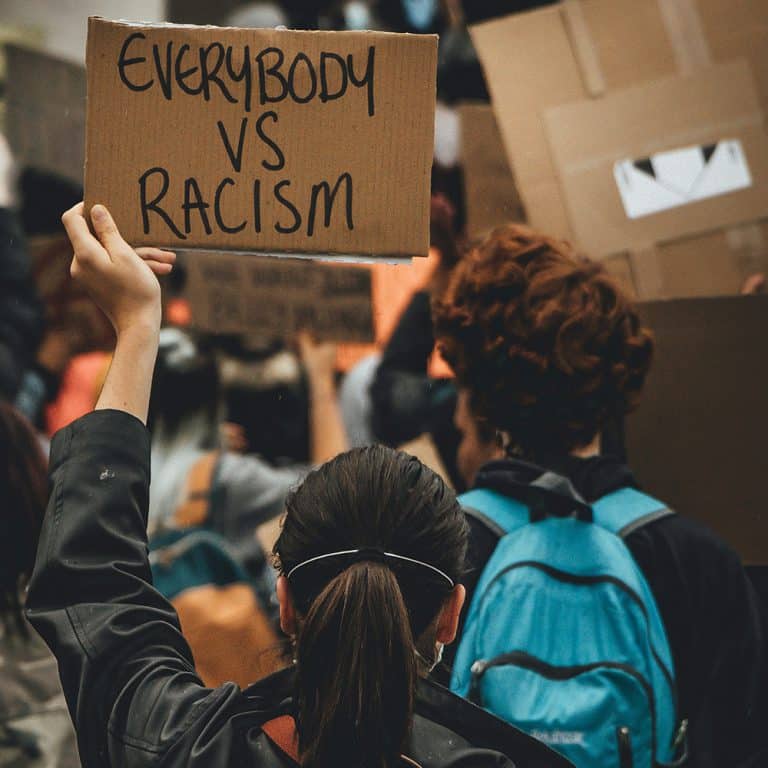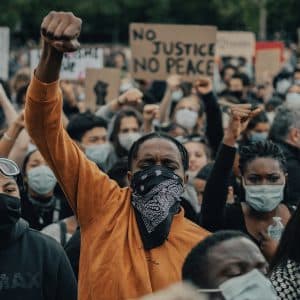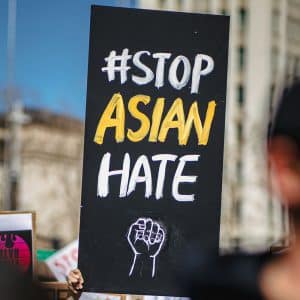-

If I say I don’t see skin colour am I racist?
How we each see the world —and what we choose not to see — shapes our reality. To be truly anti-racist, we have to think and see differently.
-

If I assume you are not from here, am I racist?
We all have biases. Whether we know it or not, they can cause us to discriminate.
-

If I want to forget our province’s history, am I racist?
This isn’t about feeling guilty for the history we can’t control; this is about taking responsibility for how that history impacts us today and our part in becoming anti-racist.
Commissioner Kasari Govender: Am I racist? Your initial answer might surprise you
Many years ago, I was teaching a class of newcomer children about human rights. When I asked them to name their human rights, a little girl in a hijab piped up, proudly, “I have the right to marry who I want and have as many kids as I want to.”
For a moment, I was taken aback. She’d surprised me with her self-assurance. I had unconsciously assumed, based on her ethnicity and religion, that she’d be timid and unaware of her rights. Yet this child schooled the human rights “expert” in the classroom, teaching me an important lesson about why we must confront our bias.
As B.C.’s human rights commissioner, I’m calling on Canadians to confront our own racism in order to help uproot systemic racism. This month, I launched a public awareness campaign across British Columbia that asks this difficult but urgent question: Am I racist?
While you ponder, consider that racism is not always about extremes: The spray-painted swastika on the side of the Chinese Community Centre, the shooting at the synagogue or the burning cross. Racism does not require hatred or even overt discrimination to cause harm. Nice people can be racist. I can be racist. So can you.
Our collective, often subconscious racism upholds systemic racism and fuels social harms, whether or not we want to recognize it. Systemic racism is a key driver of poverty. It clogs our courts and our prisons. It drives up suicide rates and the number of children in foster care. It cuts people’s educations, opportunities and lives short.
Some still deny systemic racism exists. They attribute racist acts — the murder of George Floyd by police in Minneapolis, the harassment Joyce Echaquan received for being Indigenous while dying in a Quebec hospital — to a few “bad apples.” But the data doesn’t back that up: Racism is widespread and insidious. The Ontario Human Rights Commissioner recently found a Black person in Toronto is 20 times more likely to be shot and killed by police than a white person. Yet top policing officials across the country have denied or equivocated on whether systemic racism exists in their forces.
It is time to admit, not deny.
The fact is, our laws and systems produce consistently discriminatory outcomes for Indigenous and racialized peoples. It doesn’t matter whether it is by design, by law, by “bad apple” or by accident — to the Black youth shot for wearing a hooded sweatshirt or the Indigenous family whose missing daughter’s case is never properly investigated, it feels like the same racism.
Systems do not change themselves. People change, and then they change the system. The change I am asking you to make is this: To do the work to progress from subconsciously racist to actively anti-racist. Commit to asking yourself hard questions:
- If I say I don’t see skin colour, am I racist?
- If I assume you aren’t from here, am I racist?
- If I want to forget our province’s — and, more pointedly our nation’s — history, am I racist?
- And then how can I — how can we — become actively anti-racist instead?
We can start by educating ourselves, although we certainly can’t stop there. There is great power in curiosity: Try to understand how it feels to be spoken to like an outsider, even when you’ve lived here all your life. Try to understand how it feels to see people to pretend that racism doesn’t exist when your child is bullied for the shape of their eyes, your community centre is graffitied with hate or you lose your job because of your turban. Try to understand how it feels to come from a family whose land and children have been taken away and their history erased.
It may surprise you that many of us feel like we don’t belong. It may surprise you to hear how many of your neighbours feel unsafe, as police-related deaths and hate-fuelled violence rise. In my home of Vancouver, anti-Asian acts of hate reported to police are up 878 per cent in one year.
It may surprise you to learn about Canada’s racist past and how it still shapes our present. Like the little known fact that South African government officials came to Canada in the 1940s to study the reserve system we created under the Indian Act, then used their research to design apartheid. Many features of that system still exist in Canada, far past the demise of apartheid.
Yes, talking about racism in uncomfortable. But it’s a discomfort that cannot compare to the pain of generations of families whose children were taken to residential schools.
So ask yourself: Am I racist? And what am I going to do about it?
This op-ed originally appeared in The Province on Dec 2, 2020.



